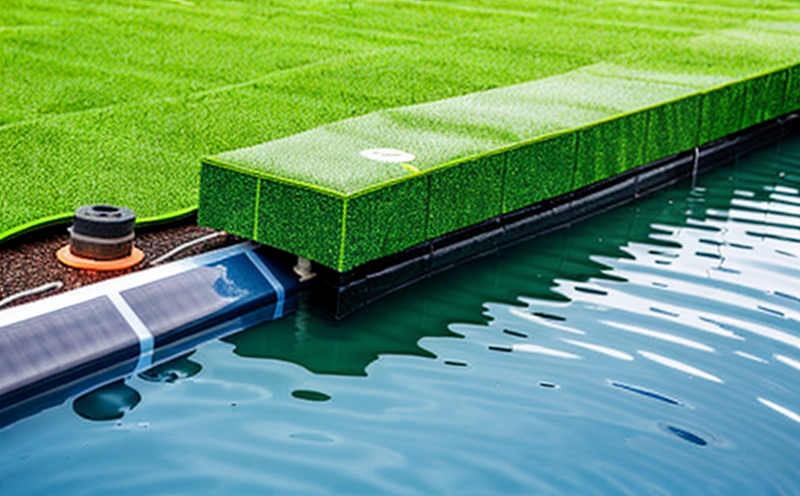Verifying that materials used in waterproofing do not degrade under UV exposure or temperature fluctuations
Ensuring the Durability of Waterproofing Materials Verifying Resistance to UV Exposure and Temperature Fluctuations
As a business involved in waterproofing, you understand the importance of using high-quality materials that can withstand various environmental conditions. However, exposure to sunlight (UV rays) and temperature fluctuations can cause degradation, compromising the integrity and effectiveness of these materials. This is where Eurolab comes in our laboratory services provide a crucial step in ensuring the reliability and performance of your waterproofing solutions.
Why Verifying Materials Resistance Matters
Waterproofing materials are designed to protect structures from water ingress, which can lead to costly repairs, damage to property, and safety hazards. However, if these materials degrade over time due to external factors such as UV exposure or temperature fluctuations, they may fail to perform their intended function. This can result in significant losses for businesses, including financial costs, reputational damage, and potential liabilities.
Verifying that your waterproofing materials resist degradation under various conditions is essential to prevent such outcomes. Our laboratory service at Eurolab helps you ensure the long-term efficacy of your products, thereby minimizing risks and maximizing returns on investment.
Advantages of Using Eurolabs Verifying Service
Our laboratory service offers numerous benefits for businesses involved in waterproofing
Ensures Material Durability By testing materials under controlled conditions, we can simulate real-world scenarios, allowing you to identify potential weaknesses and make informed decisions about material selection.
Prevents Costly Repairs Regular maintenance and inspection of waterproofing systems are crucial. Our service helps you detect issues early on, reducing the likelihood of costly repairs or replacements.
Enhances Safety Waterproofing materials that degrade under environmental stressors can compromise structural integrity and pose safety risks. Our testing ensures your products meet strict safety standards.
Improves Compliance By verifying material resistance to specific conditions, you can ensure compliance with regulatory requirements and industry benchmarks.
Supports Research and Development Our laboratory services can help you refine product formulations, improve manufacturing processes, and stay ahead of the competition.
Key Benefits
Reduced Maintenance Costs
Improved Material Performance
Enhanced Safety Features
Compliance Assurance
Informed Decision-Making
Frequently Asked Questions (FAQs)
Q What types of materials can be tested through Eurolabs service?
A Our laboratory services cater to a wide range of waterproofing materials, including coatings, membranes, sealants, and more.
Q How are the tests conducted, and what conditions are simulated?
A We employ industry-standard testing methods and equipment to simulate various environmental conditions, such as UV exposure, temperature fluctuations, and moisture levels.
Q What kind of data or reports can I expect from Eurolabs service?
A Our expert team will provide comprehensive test results, including visual inspections, chemical analysis, and performance evaluations. We also offer customized reporting tailored to your specific needs.
Q Can I trust the accuracy of Eurolabs testing methods?
A Yes, our laboratory is equipped with state-of-the-art equipment and follows strict quality control procedures to ensure precise and reliable results.
By partnering with Eurolab for material verification services, you can rest assured that your waterproofing materials will withstand environmental stressors, ensuring the long-term performance and integrity of your products. Dont compromise on safety, durability, or compliance choose Eurolab for peace of mind and a competitive edge in the industry.
-
Testing the ability of building materials to prevent water penetration and moisture damage
-
Simulating water exposure to materials to assess how well they resist moisture infiltration
-
Ensuring that roofing, foundations, and walls are protected from water damage by waterproofing materials
-
Verifying that materials such as membranes, coatings, and sealants are effective against water infiltration
-
Testing materials for their resistance to water absorption, swelling, or degradation over time
-
Simulating rain, snow, and humidity to evaluate how materials perform in wet conditions
-
Ensuring that materials used in basements or exterior walls prevent water from entering the building
-
Evaluating how waterproof coatings protect structures in extreme weather conditions
-
Testing waterproof materials for long-term durability and their ability to resist environmental stressors
-
Verifying that construction materials remain dry and unaffected by moisture or water exposure
-
Ensuring that waterproofing systems provide adequate drainage to prevent moisture buildup
-
Testing the resistance of materials to various forms of water, including fresh, salt, and chemical exposure
-
Simulating flooding conditions to assess how building materials handle excessive water pressure
-
Ensuring that waterproofing materials are easy to apply and provide consistent protection
-
Evaluating the adhesion of waterproof membranes to various building surfaces, ensuring long-term effectiveness
-
Testing for resistance to condensation or vapor transmission that could lead to moisture issues
-
Ensuring that the waterproofing materials are compatible with other building components for seamless protection
-
Testing for the integrity of seals and joints to prevent water leakage between different building elements
-
Simulating the effects of water pooling to evaluate whether waterproof materials remain effective
-
Testing the impact of construction and environmental stress on the longevity of waterproof coatings
-
Ensuring that waterproofing solutions can handle seasonal changes in moisture levels without failing




